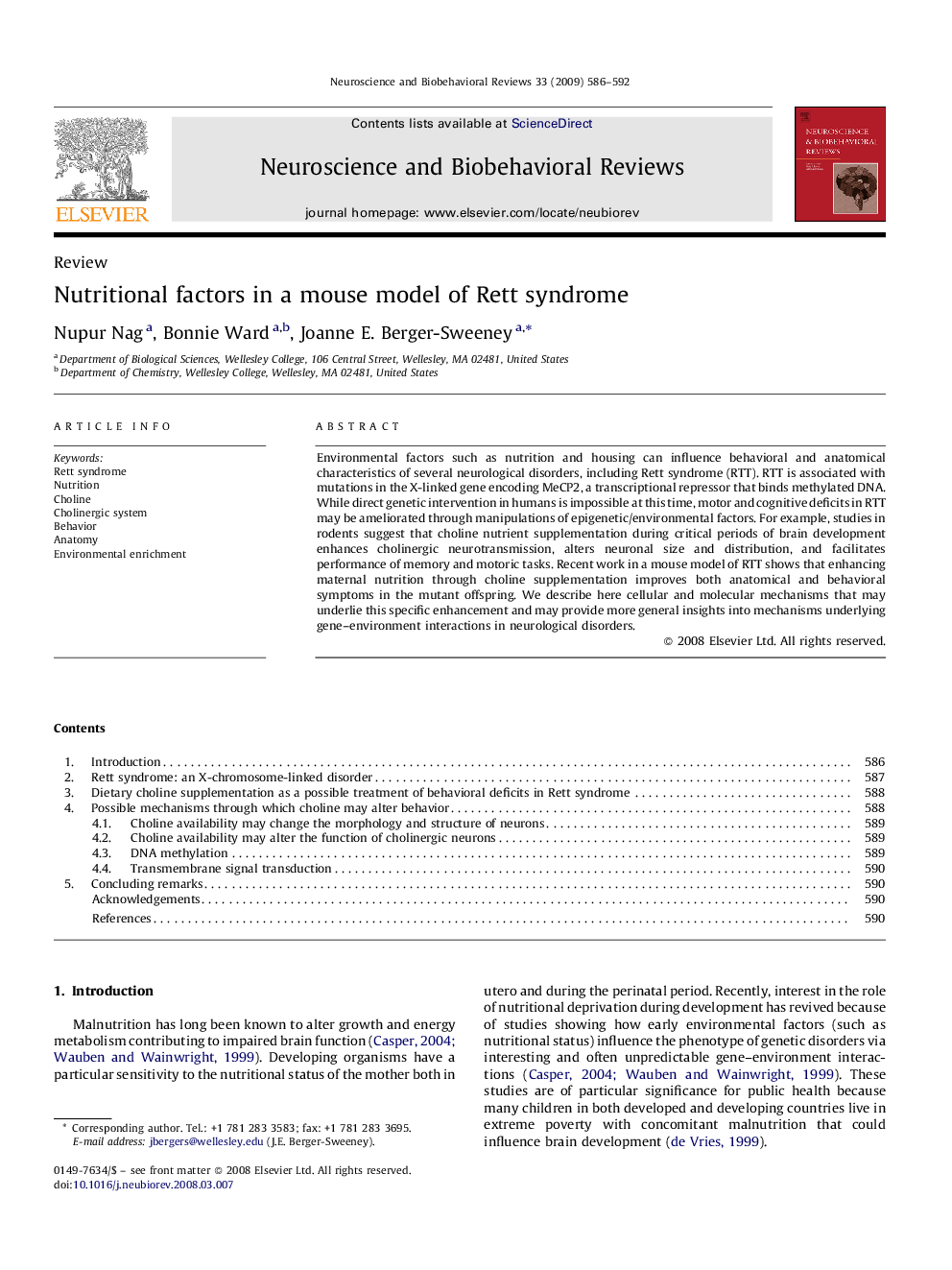| Article ID | Journal | Published Year | Pages | File Type |
|---|---|---|---|---|
| 937703 | Neuroscience & Biobehavioral Reviews | 2009 | 7 Pages |
Environmental factors such as nutrition and housing can influence behavioral and anatomical characteristics of several neurological disorders, including Rett syndrome (RTT). RTT is associated with mutations in the X-linked gene encoding MeCP2, a transcriptional repressor that binds methylated DNA. While direct genetic intervention in humans is impossible at this time, motor and cognitive deficits in RTT may be ameliorated through manipulations of epigenetic/environmental factors. For example, studies in rodents suggest that choline nutrient supplementation during critical periods of brain development enhances cholinergic neurotransmission, alters neuronal size and distribution, and facilitates performance of memory and motoric tasks. Recent work in a mouse model of RTT shows that enhancing maternal nutrition through choline supplementation improves both anatomical and behavioral symptoms in the mutant offspring. We describe here cellular and molecular mechanisms that may underlie this specific enhancement and may provide more general insights into mechanisms underlying gene–environment interactions in neurological disorders.
